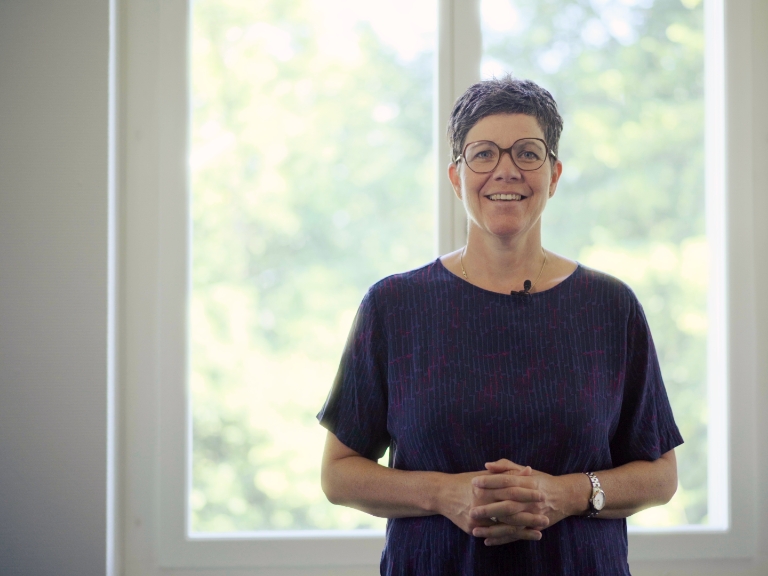WWF rating
University of Bern is “ambitious” when it comes to sustainability
Together with three other universities, the University of Bern is ranked in the highest occupied category in the WWF’s 2024 sustainability rating of Swiss universities.

University of Bern, University of Lausanne, Bern University of Applied Sciences, Zurich University of Teacher Education (PH Zurich): These four higher education institutions have been placed in the highest occupied category of “ambitious” in the WWF’s Sustainability Rating of Swiss Universities 2024 in German. None of the 29 institutions surveyed ranked in the top category “visionary”. “There has been a major step forward since the first rating seven years ago,” says Leo Gilliard, Head of Sustainable Universities at WWF Switzerland: “Today, all Swiss universities are addressing the issue of sustainability – albeit to varying degrees.”
“This is a great achievement by the University of Bern,” says Heike Mayer, Vice-Rector for Quality and Sustainable Development, who is responsible for embedding sustainability at the University of Bern: “Our efforts to promote sustainability in research, teaching, communication and operations are being acknowledged.”

Climate goal and Education for Sustainable Development (ESD)
According to the WWF rating, the University of Bern has made significant progress in the area of sustainability since 2021, with a special focus on climate measures, education and stakeholder involvement. Specifically, the “ambitious climate neutrality target” is highlighted, which, according to the rating, reflects a “strong institutional commitment to sustainability”.
“A great encouragement – but there’s still a lot to do”
Heike Mayer
Mention is also made of efforts in the areas of Education for Sustainable Development (ESD) and research as part of the priority topic of sustainability. For example, in addition to the bachelor’s and master’s minor in Sustainable Development, the master’s degree program in Sustainability Transformations was introduced to enable students to tackle challenges in the area of sustainability and implement real projects. The Sustainability Days 2021 and 2023, (link in French and German) co-organized by the University of Bern, which promoted collaboration between Bern’s universities and informed the public about sustainable development issues, were also mentioned positively. The biannual Sustainability Report was also published for the fourth time. This shows the progress and commitment of the University of Bern to transparency and continuous improvements in the area of sustainability.
Emphasis is also given to the support of student engagement with Students4Sustainability and cooperation with society as well as private and public stakeholders such as the Wyss Academy for Nature and the Mobiliar Lab for Natural Risks.
There’s still a lot to do
“These results are a great encouragement,” says Vice-Rector Heike Mayer: “But there is still a lot to do to become a visionary university when it comes to sustainability.” Specifically, Mayer mentions efforts to integrate sustainability even more strongly into education programs and the involvement of teachers, students and administration in the development of the Roadmap to climate neutrality by 2030. With the latter, the University of Bern is shifting from a strategy geared towards offsetting measures to one that focuses on mitigation measures and innovative climate protection measures. Corresponding projects are to emerge from an ideas competition and the new transdisciplinary outreach project Engaged UniBE, explains Mayer: “We want to develop innovative approaches that build on the unique strengths of a university: creativity and knowledge.” The participatory development of the roadmap involves stakeholders throughout the University and aims to achieve meaningful reductions in emissions and to integrate sustainability deeply into University operations.
Well-established institutionally
The WWF rating also addresses the question of how sustainability can be embedded institutionally in order to make progress. The University of Bern uses the strengths of three important units here: the Office for Sustainable Development in the Vice-Rectorate Quality and Sustainable Development, the Education for Sustainable Development (ESD) team of the Centre for Development and Environment (CDE) and the Commission for Sustainable Development. The Office coordinates sustainability initiatives in the areas of research, teaching and campus operations, while the ESD team focuses on integrating sustainability into education programs and supporting lecturers. The Commission ensured coordination and engagement across all faculties and administrative levels, which, according to the WWF rating, resulted in an effective approach that had significantly advanced sustainability across the University.

Increased collaboration with society
According to the WWF rating, there is potential for expansion or optimization in strengthening the capacities of the Office for Sustainable Development in order to effectively advance its initiatives in the areas of teaching, research, communication, operations and transfer as well as services.
The rating sees further opportunities in expanding the mandatory sustainability-related courses so that all students receive a basic knowledge of sustainability, as well as of improved partnerships with society.
According to the rating, establishing structured, long-term collaboration with external stakeholders could increase the University of Bern’s influence on regional sustainability. This is precisely the goal of Engaged UniBE, says Heike Mayer: “We want to strengthen transdisciplinary research and teaching and work more closely with society in areas relevant for sustainability transformation.”
Sustainability rating of Swiss universities
Following the ratings in 2017, 2019 and 2021, WWF has for the fourth time analyzed all recognized tier-one universities and universities of applied sciences as well as the eight largest universities of teacher education with regard to the anchoring of sustainability. Of the 30 institutions contacted, 29 took part in the study. The WWF collaborated with the company econcept AG. Eleven criteria were examined in the dimensions of strategy, processes, organization, stakeholders and output. By evaluating these dimensions, it is possible to assess how sustainability is anchored in the long-term strategy, in its implementation in processes, in day-to-day life, in collaboration with various stakeholders and in the effective results in the area of teaching.
More information:
More about sustainability at UniBE
More about the Climate Neutrality project
More about Engaged University
More about Education for Sustainable Development at UniBE
Subscribe to the uniAKTUELL newsletter

Discover stories about the research at the University of Bern and the people behind it.

